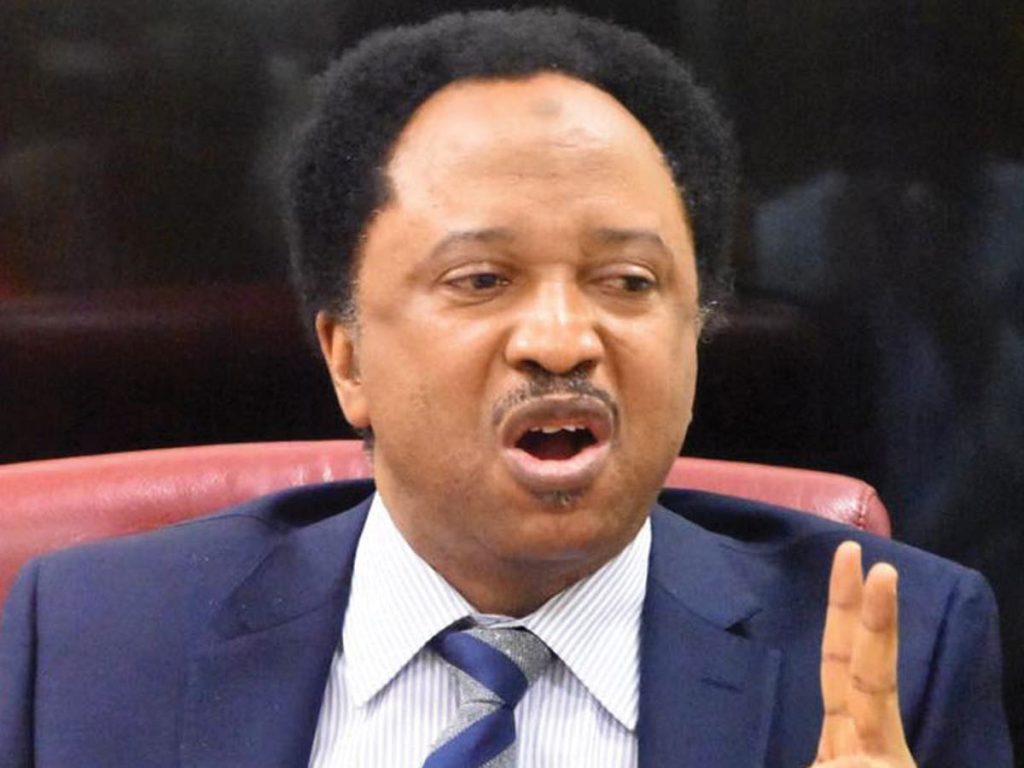A former Kaduna lawmaker, Senator Shehu Sani, stated that increasing the minimum wage for low-wage workers should come before increasing the salaries of elected politicians, including the president, vice president, governors, lawmakers, as well as those in judicial and public office.
On Wednesday, Sani made a statement via his verified Twitter account.
He stated, “Raising the minimum wage of poor workers should come first before that of the elites holding public offices.
“With this 114% increase,a Federal Legislator will earn about N2million monthly salary and 25 Million monthly running cost for his office. Money derived from the removal of subsidies should be spent wisely,” he added.
Recall that the Revenue Mobilization, Allocation and Fiscal Commission (RMAFC) has requested a 114% rise in the pay of elected officials, including the President, Vice President, Governors, Members of Congress, and those holding judicial and public office.
The President, Vice President, Governors, Deputy Governors, Ministers, Commissioners, Special Advisers, Legislators, and the holders of the offices mentioned in Sections 84 and 124 of this Constitution are among the political officeholders whose compensation is to be determined by RMAFC.
The commission encouraged the Houses of Assembly of the 36 states to move quickly to alter pertinent laws to allow for an upward review of compensation packages for public, judicial, and political officials.
The decision was announced at the presentation of papers regarding the reviewed compensation package to Kebbi State Governor Dr. Nasir Idris on Tuesday in Birnin Kebbi. The RMAFC Chairman, Muhammadu Shehu, made the announcement in representation of a federal commissioner, Rakiya Tanko-Ayuba.
He added that the move was in accordance with the clause of paragraph 32(d) of part 1 of the Third Schedule of the 1999 Constitution of the Federal Government (as amended), and that the implementation of the reviewed compensation packages took effect on January 1, 2023.
He said the last remuneration review was conducted in 2007, noting that it culminated in the “certain political, public and judicial office holders (salaries and allowances, etc) (Amendment) Act, 2008”.
Muhammadu Shehu said, “It empowers the revenue mobilisation, allocation and fiscal commission to determine the remuneration appropriate for political office holders, including the president, vice-president, governors, deputy governors, ministers, commissioners, special advisers, legislators and the holders of the offices mentioned in sections 84 and 124 of the constitution of the federal government.
“Sixteen years after the last review, it is imperative that the remuneration packages for the categories of the office holders mentioned in relevant sections of the 1999 constitution (as amended) should be reviewed.
“Pursuant to the above, your excellency may please recall that on Wednesday, 1st February, 2023, the commission held a one-day zonal public hearing on the review of the remuneration package simultaneously in all the six (6) geo-political zones of the country. The aim of the exercise was to harvest inputs/ideas from a broad spectrum of stakeholders.”
Adding that it abides by the laws of equality and justice, risk and obligations, and national order of precedence among other norms, he claimed that the commission had objectively and subjectively examined the remuneration packages in the reports.
“The subjective criteria reflected the various expression by stakeholders through memoranda received, opinions expressed during the zonal public hearings and responses to questionnaires administered.
“The objectives of the criteria were obtained from analysis of macro-economic variables particularly the Consumer Price Index (CPI),” he noted.
The commission was also governed by various criteria, the chairman said, including justice and fairness, risk and responsibility, national precedence, motivation, and tenure of office.
According to Muhammadu Shehu, the compensation for those holding political, public, and judicial office in the nation has been adjusted “upward by 114%” after taking into account the review’s effects on the economy.
The panel was considering the addition of three new allowances for those holding judicial offices, the chairman said.
He listed the allowances to include, “Professional Development Assistant: This is to allow for the provision of two law clerks to all judicial officers in the country.
“Long Service Allowance: This is to guarantee seniority/hierarchy between officers who have been on the bench for a minimum of five years and those that are appointed newly.
“Restricted or Forced Lifestyle: This is to take care of the nature of the lifestyle of judicial officers while in active service.”

